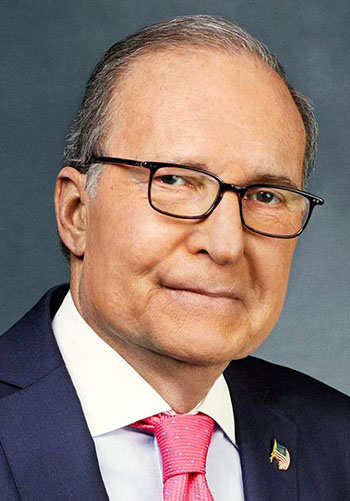WASHINGTON, (Reuters) – The United States expects immediate action by China on trade issues after a deal reached by the countries’ leaders, including lower tariffs on automobiles and measures against intellectual property theft and forced technology transfers, a White House official said yesterday.
U.S. President Donald Trump and Chinese President Xi Jinping agreed to hold off on new tariffs for 90 days during talks in Argentina on Saturday, declaring a truce following months of escalating tensions on trade and other issues.
A White House official said the 90-day period started on Dec. 1. Earlier, White House economic adviser Larry Kudlow told reporters it would start on Jan. 1.
The Chinese offered more than $1.2 trillion in additional commitments on trade, Treasury Secretary Steve Mnuchin said on Monday. Kudlow said that figure was a broad benchmark and referred to private transactions for buying U.S. goods, subject to market conditions.
China also committed immediately to start lifting tariffs and non-tariff barriers, including reducing its 40 percent tariffs on autos, Kudlow said.
“We expect those tariffs to fall to zero,” he told reporters.
Americans will get majority ownership in companies in China for the first time, which should help address top U.S. concerns about including intellectual property theft and forced technology transfers.
None of the commitments were agreed to in writing and specifics had yet to be hammered out.
Mnuchin said there was a shift in tone at Buenos Aires from past discussions as Xi offered a clear commitment to open China’s markets to U.S. companies.
“This is the first time that we have a commitment from them that this will be a real agreement,” Mnuchin told CNBC.
Kudlow, director of the National Economic Council, said he, Mnuchin and U.S. Trade Representative Robert Lighthizer held two private meetings with China’s Vice Premier Liu He in Argentina and he told them that Beijing would move immediately on the new commitments.
“The history here with China promises is not very good. And we know that,” Kudlow said. “However, I will say this: President Xi has never been this involved.”
Kudlow said: “They cannot slow walk this, stall this, meander this. Their word: ‘immediately.’”
The truce boosted global markets on Monday with world stocks rising to their highest in about three weeks. On Wall Street, the benchmark S&P 500 gained nearly 1 percent, although the index had come off its earlier session highs in afternoon trading.
Kudlow said U.S. officials will monitor Chinese progress on enforcing the commitments very closely.
Trump has appointed Lighthizer, one of the administration’s most vocal China critics, to oversee the new round of trade talks with China, officials said.
The appointment of Lighthizer, who just completed a new agreement with Canada and Mexico, may signify a harder line in talks with Beijing and marks a shift from past practices where Mnuchin had a lead role.
“He’s the toughest negotiator we’ve ever had at the USTR and he’s going to go chapter and verse and get tariffs down, non-tariff barriers down and end all these structural practices that prevent market access,” White House trade adviser Peter Navarro told National Public Radio earlier on Monday.
Kudlow said he and Mnuchin would be heavily involved as well, with the Treasury secretary dealing with financial and currency issues.
The White House is stepping up efforts to prod other countries to build more vehicles in the United States. Lighthizer and other officials including Kudlow are set to meet with German automakers on Tuesday, including the chief executives at Volkswagen AG and Daimler AG , people briefed on the matter said.
Kudlow said the meeting was not meant to focus on potential car tariffs, though Trump still held that option in his “quiver,” and the automakers would be encouraged to build engines in the United States.
Chinese regulators did not respond to requests for comment on Trump’s tweet on autos tariffs. Neither country had mentioned auto tariffs in their official read-outs of the Trump-Xi meeting.
On Sunday, Trump tweeted that China had agreed to cut import levies on American-made cars.

